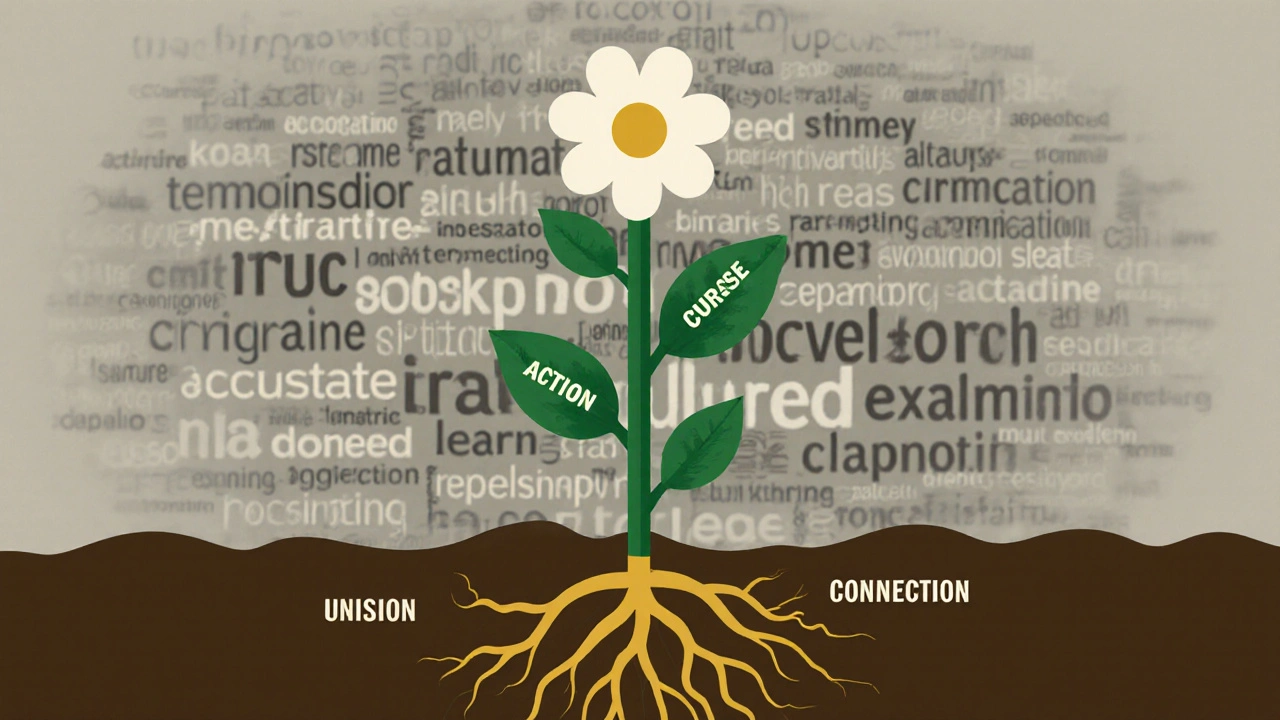
Writing a personal statement for a UK course isn’t about impressing with big words. It’s about showing who you are, why you care, and what you’ve done to prove it. Thousands of students apply for the same spots at UK universities every year. What sets one applicant apart isn’t a perfect GPA-it’s a clear, honest, and specific story that makes the reader think, "This person gets it."
What UK Admissions Teams Actually Look For
UK universities don’t want a rewritten CV. They don’t need you to list every club you joined or every volunteer hour you logged. They’re looking for three things: curiosity, commitment, and clarity.
Curiosity means you’ve gone beyond the classroom. Did you read a book outside your syllabus that changed how you see your subject? Did you watch a documentary and then research the topic further? That’s curiosity. Commitment means you’ve stuck with something-even when it was hard. Did you keep working on a science project after your group gave up? Did you teach yourself coding because your school didn’t offer it? That’s commitment. Clarity means you can explain why this course matters to you, not just why you want to go to university.
A 2024 survey by UCAS found that 73% of admissions tutors said a personal statement was the deciding factor when two applicants had identical grades. That’s not because the statement was flashy. It was because one applicant showed genuine engagement with their subject, and the other didn’t.
What Great Personal Statements Include
Great personal statements follow a simple pattern: what you did, what you learned, and why it matters to your future.
Take this real example from a student applying for Psychology:
- "After my grandmother was diagnosed with early-stage dementia, I started volunteering at a local care home. I noticed how music triggered memories in patients who barely spoke. I read research on music therapy and reached out to a neuroscientist at the University of Edinburgh. She let me shadow her for a weekend. I didn’t just observe-I asked questions. I took notes on how different rhythms affected mood. That’s when I realized psychology isn’t just about theory. It’s about real people, and how small interventions can change lives. That’s why I want to study Psychology at your university-to learn how to design those interventions."
Notice what’s missing? No mention of "passion" or "love for learning." No clichés like "since I was a child." No generic praise for the university. Instead, there’s a specific event, a clear action, a tangible outcome, and a direct link to the course.
Another example, from a student applying for Engineering:
- "I built a solar-powered water pump for my village’s community garden using scrap parts from a broken washing machine. It took six weeks. It failed three times. Each time, I went back to the diagrams, recalibrated the motor, and tested again. When it finally worked, the garden produced 40% more vegetables. I didn’t do it for a prize. I did it because my neighbor’s tomatoes kept dying from lack of water. That’s when I knew engineering isn’t about fancy machines-it’s about solving real problems with simple tools. Your course’s focus on sustainable design is exactly what I need to build better systems."
This works because it’s specific. It names a problem, shows effort, and ties it directly to the course’s strengths. It doesn’t say "I’m hardworking." It proves it.
What to Avoid at All Costs
Here’s what most applicants get wrong:
- "I’ve always wanted to be a doctor since I was five." - Too vague. No proof. No depth.
- "Your university has an excellent reputation." - Everyone says this. It means nothing.
- Listing achievements without context. "I won first place in the science fair." So what? What did you learn? Why does it matter?
- Using quotes from famous people. "As Einstein said..." - No one cares. You’re not Einstein.
- Writing about travel or volunteering just because it sounds impressive. Did you actually contribute? Or were you just there?
One student wrote about spending a summer in Italy studying art history. The admissions team read it and thought: "Did they learn anything? Or just take photos?" The statement didn’t connect the experience to their academic goals. It was decoration, not substance.

Structure That Works
You don’t need a fancy structure. Just follow this flow:
- Start with a moment. A real experience-something you saw, did, or felt. Not a general idea.
- Explain what you did. What steps did you take? What did you read? Who did you talk to?
- Share what you learned. Not just facts. Insights. Changed thinking. New questions.
- Connect it to the course. Why this program? What specific modules, professors, or projects excite you? Be precise.
- End with where you want to go. Not "I want a good job." But "I want to design affordable medical devices for rural clinics."
Keep it under 4,000 characters. Every word must earn its place.
How to Make Your Statement Stand Out
Here’s the secret: be specific, not impressive.
Instead of saying, "I’m interested in environmental science," say:
- "I tracked microplastic levels in the creek behind my house for three months. I used a DIY filtration kit I built from a soda bottle and coffee filters. The water had 12 times more particles than the EPA’s safe limit. I presented my findings to the town council. They’re now considering a local ban on single-use plastics."
That’s a statement. Not a list.
Another trick: mention a specific module or research project from the course you’re applying to. Don’t just say "your program is great." Say:
- "I’m particularly drawn to your module on Climate Policy in the Global South. Last year, I analyzed how droughts in Kenya affected school attendance. I want to learn how policy can be designed with local communities, not just imposed on them."
This shows you’ve done your homework. It tells them you’re not just applying because it’s a top-ranked school. You’re applying because you’ve already started thinking like a student there.
Common Mistakes Even Smart Students Make
Many students write great content but ruin it with tone.
Don’t sound like a textbook. Don’t sound like you’re trying to sound smart.
Here’s a bad line: "My intellectual curiosity in the field of biomedical engineering is profound."
Here’s the same idea, written well: "I spent a month building a prototype for a low-cost insulin pump after my cousin couldn’t afford hers. I didn’t know anything about circuits at first. I watched YouTube tutorials. I broke three boards before I got it right. Now I want to learn how to make medical tech that doesn’t cost a fortune."
One is trying to impress. The other is telling the truth.
Also, avoid passive voice. Don’t say "It was decided that I would volunteer." Say "I volunteered." Be direct. Be human.

Final Checklist Before You Hit Submit
Ask yourself these questions:
- Does every paragraph answer: Why does this matter to my future in this course?
- Is there at least one real, specific example that isn’t just a grade or award?
- Did I mention something unique about this course (a module, lab, professor, research group)?
- Could someone else read this and think, "This could be anyone"? If yes, rewrite it.
- Did I cut all clichés? "Passionate," "since childhood," "dream job," "make a difference"-delete them.
If you can answer yes to all five, you’re ready.
What Happens After You Submit
Once you hit submit, your personal statement doesn’t disappear. It’s the first thing interviewers read. If you mention volunteering at a hospital, they’ll ask: "What was the hardest part?" If you mention building a robot, they’ll ask: "What failed first?"
That’s why authenticity matters. You can’t fake curiosity. You can’t fake persistence. Admissions teams have read thousands of statements. They know the difference between someone who’s been thinking about this for months-and someone who wrote this the night before.
Your statement isn’t a sales pitch. It’s a conversation starter. Make it worth their time.
How long should a UK personal statement be?
The UCAS personal statement has a strict limit of 4,000 characters or 47 lines, whichever comes first. That’s about 500-600 words. Most successful statements are around 550 words. Every word must count-no fluff, no filler. If you’re over the limit, cut the generalities and keep the specifics.
Can I reuse my personal statement for multiple courses?
Yes, but only if the courses are closely related-like Biology and Biomedical Sciences. If you’re applying to completely different fields-say, History and Engineering-you need separate statements. Admissions tutors spot generic statements instantly. A statement about Shakespeare won’t work for a Mechanical Engineering course. Tailor your examples to match the subject.
Should I mention my grades in the personal statement?
No. Your grades are already on your application form. The personal statement is your chance to show who you are beyond the numbers. If you had a bad grade in one subject, don’t make excuses. Focus on what you’ve done since then to grow. Did you take an online course? Read extra books? Tutor someone? That’s what matters now.
Do UK universities read personal statements for international students?
Yes. International applicants are judged by the same standards. In fact, your statement might carry more weight because your academic system might look different. Use your statement to explain your background, not to apologize for it. If you come from a school with limited resources, show how you made the most of them. That’s compelling.
Is it okay to get help writing my personal statement?
You can ask someone to read it for clarity, grammar, or flow. But the ideas, stories, and voice must be yours. If a tutor or parent rewrites large sections, it becomes inauthentic. Admissions teams can tell when a statement doesn’t sound like the student. They’re not looking for perfect English-they’re looking for honest thinking. A slightly awkward but real statement beats a polished but fake one every time.
Next Steps
Start by writing one paragraph about a real moment that changed how you see your subject. Don’t edit it yet. Just get it down. Then ask yourself: What did I learn? Why does it matter? Who did I talk to? What did I do next?
Repeat that for two more moments. Then connect them. That’s your statement.
Don’t wait for inspiration. Write the messy first draft. Then cut everything that doesn’t serve the story. What’s left will be yours-and it will be strong enough to get noticed.